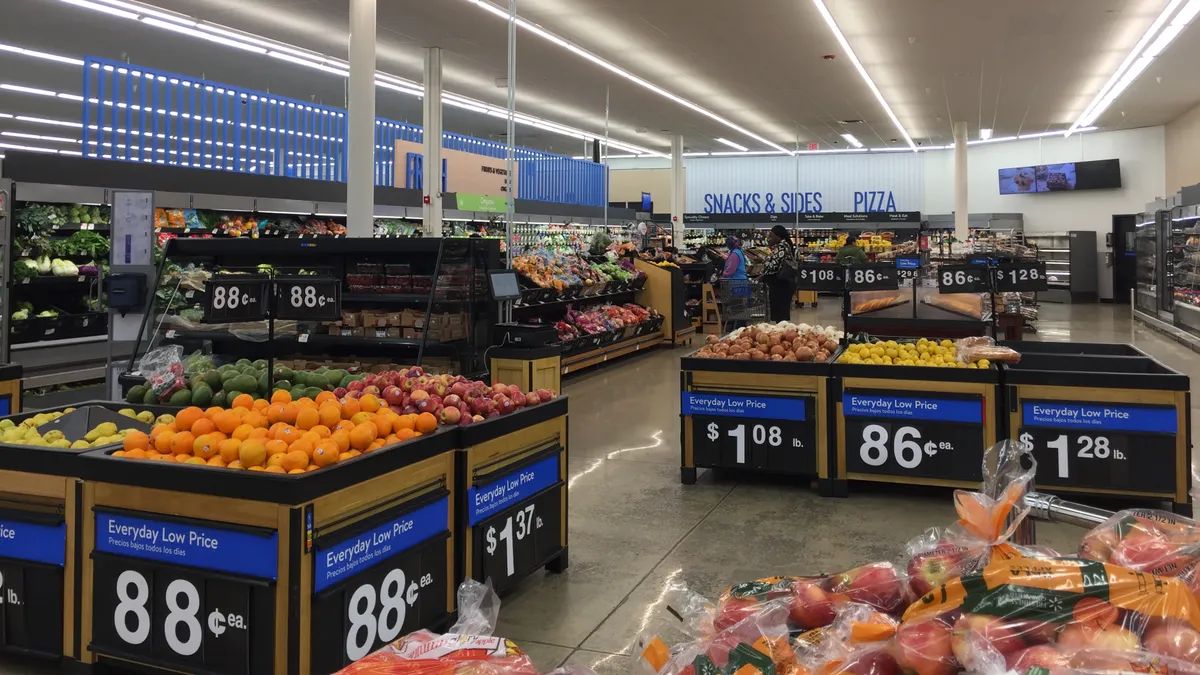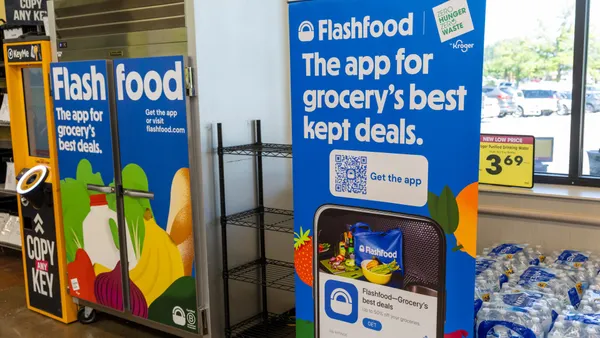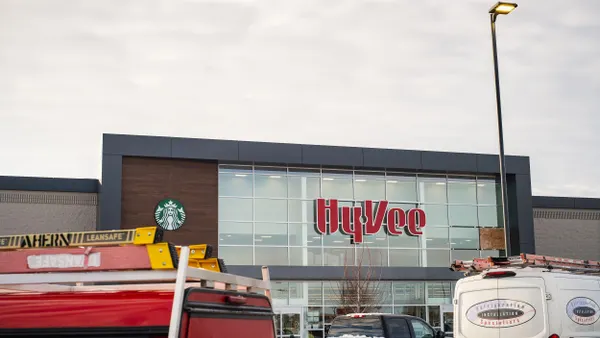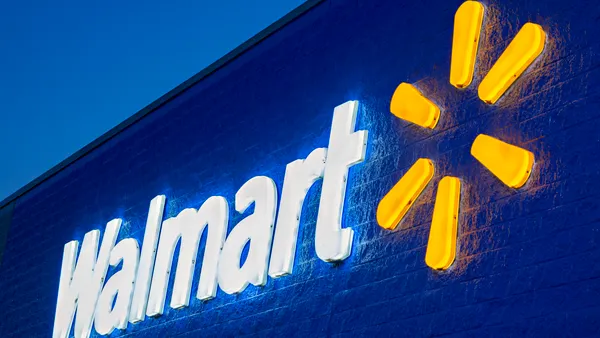Dive Brief:
- Walmart announced Thursday it will pilot agriculture technology to get real-time information on crops and improve sourcing decisions around produce.
- The partnership with crop supply intelligence company Agritask will deploy remote sensing and data analytics tools in various regions in the U.S. and Mexico and provide hyperlocal information on blackberry and cherry crops grown by certain Walmart suppliers.
- The pilot comes at a time when the grocery industry is seeking out more ways to streamline their supply chains and better react to fast-changing climate conditions that can affect prices and product availability.
Dive Insight:
Walmart said the first-of-its-kind Agritask initiative aims to reduce food waste, provide fresher produce to customers and improve supply chain management by giving sourcing managers more information about factors impacting seasonal crops.
Climate, especially, is playing a major role in supply chain disruptions. A recent report from Everstream Analytics said extreme weather events are the top risk facing supply chains in 2024.
The USDA has estimated that 30% of food loss occurs during agricultural production and harvest. The agency noted in a report that weather, disease and pests are major factors impacting food loss and quality in the food supply chain, flagging unpredictable weather as a key driver of food loss.
"This pilot offers innovative solutions to address climate change and improve industry sustainability,” Kyle Carlyle, vice president of sourcing innovation and surety of supply at Walmart, said in an email. “Amid changing weather patterns, these technologies help us adjust sourcing strategies, ensuring product availability and quality despite climate challenges.”
Walmart and Agritask said they selected cherries and blackberries for the pilot because those fruits are highly sensitive to temperature fluctuations and moisture levels, which can impact their growth and quality. The information the companies gather could, for example, allow managers to receive information about unexpected frost harming cherry production or information about harvesting delays, which could result in inventory changes.
"Dealing with challenges in purchasing and planning accuracy in agriculture due to data discrepancies and environmental uncertainties can be tough," Carlyle said in the announcement. "Agritask’s technology has the potential to fill vital information gaps that sourcing managers often face when predicting yield."
Israel-based Agritask positioned its technology as a scalable and “climate-smart” solution that taps into 15 years of agricultural supply chain insights.
The pilot is happening in collaboration with Walmart Global Tech’s Sparkubate program, which supports startup innovations. Depending on how the pilot goes, Walmart may consider using Agritask solutions and insights at scale for a second season, the announcement said.
Walmart noted that the Agritask tie-up joins a growing roster of tech-driven supply chain projects the retailer has undertaken. Those initiatives include a 3-D weaving tech pilot with fashion company Unspun and a carbon capture pilot with Rubi Laboratories.












